Batman #349
Having already suggested a bunch of movies for fans of Batman comics, I figured it would make sense to also suggest comics for fans of the most prominent Batman movies.
The thing is that, just like the comics, the movies about Batman have very different moods and approaches to the character and his universe. From ultra-goofy to ultra-grim, I would say the only take on the Dark Knight still missing from the big screen is a full-on musical like the one in the beginning of the Batman Beyond episode ‘Out of the Past’ (just the first of many unbelievably awesome things in that episode). With that in mind, these next posts are for people looking for accessible comics similar to their favorite movie version of Batman.
Let’s start with the version from the Tim Burton movies…
Tim Burton is above all an aesthetic director (some would say visionary), someone who seems more interested in making his films look stunning than in telling coherent stories. A master of gothic surrealism, Burton enjoys filling the screen with bizarre and grotesque imagery, even if he’s not above quirky cutesiness (as seen in his animated works and in Big Fish, not to mention the illustrated poetry book The Melancholy Death of Oyster Boy).
Although he is unabashedly influenced by classic horror in general and Vincent Price in particular (which is already visible in early shorts like Vincent and Frankenweenie), Burton had his breakthrough with wacky comedies (Pee-wee’s Big Adventure, Beetlejuice) and has devoted his career to genre mashups, his flamboyant authorial style often making up for lack of substance (except in Big Eyes, which has neither, wasting what could have been an interesting story). That said, underneath all the kitsch make-up, sets, and special effects, Tim Burton’s work tends to revolve around outsiders, usually freaks and monsters, especially human-animal hybrids or Johnny Depp with a funny hairdo.
I would say Burton hit his peak in the 1990s, finding fresh ways to channel his flair for romantic fantasy (Edward Scissorhands), childlike ghoulish humor (The Nightmare Before Christmas), and even his relationship with cinema and Vincent Price (mirrored in the real-life story of Ed Wood and the eponymous director’s relationship with Bela Lugosi). Since then, most of Burton’s movies have just been adaptations of pre-existing material reinterpreted through his distinctive visual and thematic motifs, namely adaptations of beloved books (Sleepy Hollow, Charlie and the Chocolate Factory, Alice in Wonderland), a musical play (Sweeney Todd), a soap opera (Dark Shadows), an originally amazing sci-fi masterpiece (Planet of the Apes), and a trading card series from the sixties (Mars Attacks!).
But before all that, the Caped Crusader got the Tim Burton treatment way back in 1989 and again in 1992. The films allegedly drew some inspiration from now-classic graphic novels The Killing Joke and The Dark Knight Returns, yet it feels like those books’ influence was essentially in terms of their bleak and violent approach to Batman’s world. Burton and his screenwriters clearly did not care about staying true to the characters, instead showing more interest in their visual and symbolic potential… so we got Bruce Wayne as a creepy rich dude in a mansion who sleeps upside down like a bat, we got Catwoman as a zombie with nine lives, we got the Joker killing the Waynes and then dying while fighting their son (the Joker creates Batman, just as Batman creates the Joker, geddit?).
Not unlike TV’s Gotham, though, once you get passed how screwed up the themes and continuity are and accept these stories as Elseworld tales, there is a lot to enjoy, from Danny Elfman’s majestic score to Anton Furst’s iconic designs. In fact, part of the fun is watching such a sinister, viciously distorted take on the Dark Knight universe. Sure, much of it is silly and chockfull of plot holes, but that’s because this is basically the operatic evil twin of the old Adam West show.
Perhaps less the fault of Sam Hamm’s script than of the many rewrites and egos involved, 1989’s Batman is as stylish as it is uneven: it starts out with a film noir vibe, moves on to Hammer horror territory, and culminates in RoboCop action mode with Batman casually killing a bunch of people with his remote-controlled, machine gun-equipped Batmobile! Kim Basinger is a bland Vicki Vale, Billy Dee Williams makes for an intriguing yet sadly undeveloped Harvey Dent, and Jack Nicholson steals the spotlight by convincingly bringing the Joker to life. As for Michael Keaton’s performance in the titular role, it works best if you think of it as a prequel to Birdman.
Coming out during his ’90s streak, Batman Returns then feels like Tim Burton on steroids. A nightmarish fairy tale, this is a surrealist, sickly comedic, and cinematographically breathtaking envisioning of Gotham City, which lies somewhere between The City of Lost Children and The Addams Family. While the hero once again fails to engage, Danny DeVito, Michelle Pfeiffer, and Christopher Walken are a blast as the villains! DeVito’s turn as the Penguin, who in this version was dumped into the sewers by his aristocratic parents, gets extra points for managing to throw the line ‘I was their number one son, but they treated me like number two.’
So if you enjoyed these movies, what comics should you read? Well, for starters, you could do worse than to check out the issues that were being published at the time, the best of which are about to get collected in the hardcover Legends of the Dark Knight: Norm Breyfogle (only one of many good reasons to buy it). That said, if you’re looking for the comics’ equivalent of a dark-as-hell Batman tale that disturbingly reimagines the series’ iconography, then you must get your hands on Arkham Asylum: A Serious House on Serious Earth:
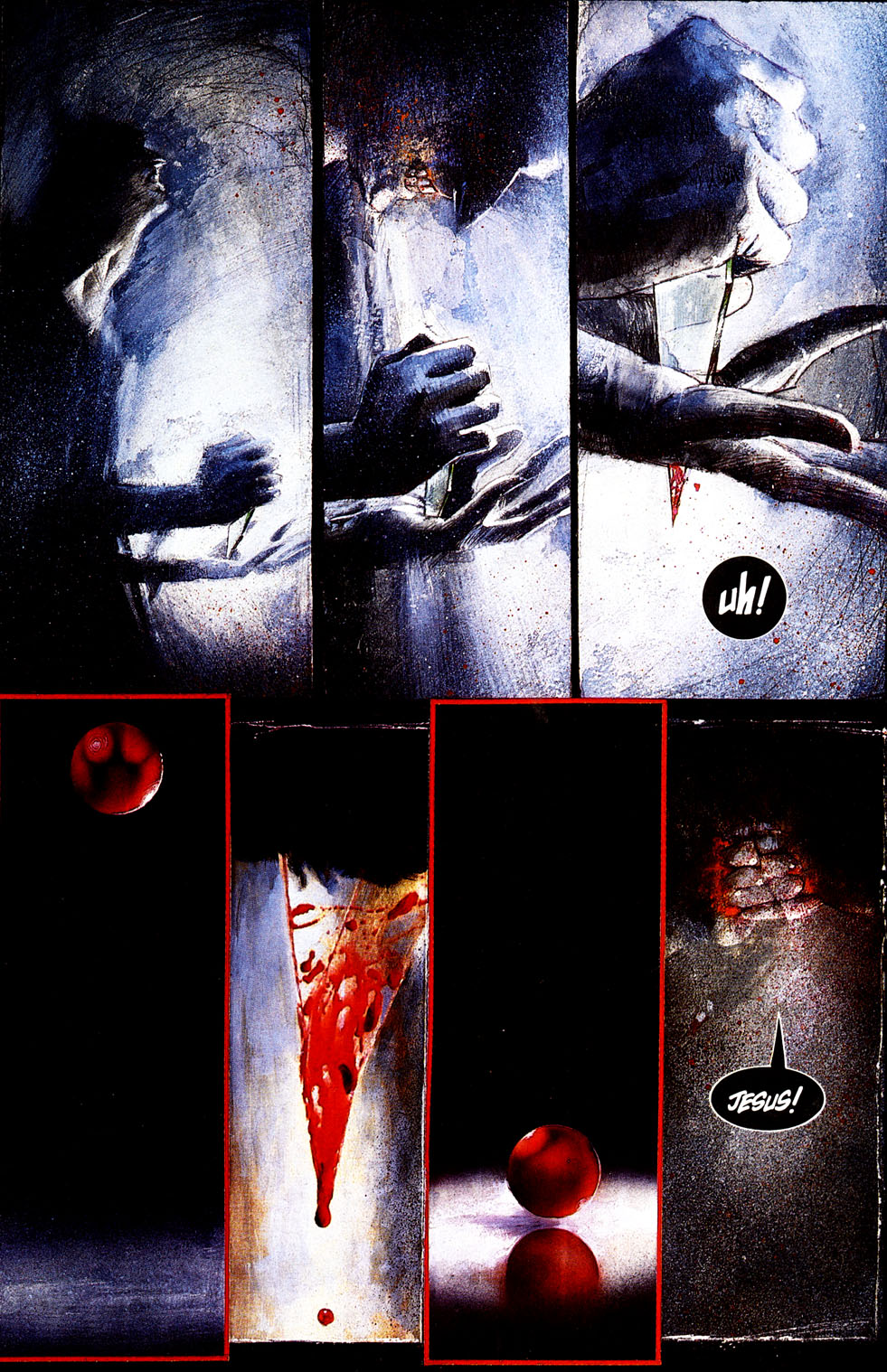 Arkham Asylum: A Serious House on Serious Earth
Arkham Asylum: A Serious House on Serious Earth
In this original graphic novel, a basic tale about the lunatics taking over Arkham Asylum and Batman coming in to sort things out serves as a vehicle for writer Grant Morrison to explore the symbolism of various villains, as the asylum becomes a metaphor for the Dark Knight’s own insanity. An attempt to apply Jungian psychology to the Bat-mythos, the comic isn’t entirely successful on either front: as a Batman adventure it’s not very exciting, as an intellectual exercise it still revolves around a guy who dresses like an animal to fight crime.
I realize this makes Arkham Asylum sound like a curio for pretentious, angst-ridden teenagers. But it’s still a fascinating book, even if it doesn’t really make a meaningful statement about anything other than Batman and his rogues’ gallery. In any case, it’s at least worth a glimpse for Dave McKean’s groundbreaking, freakish art:
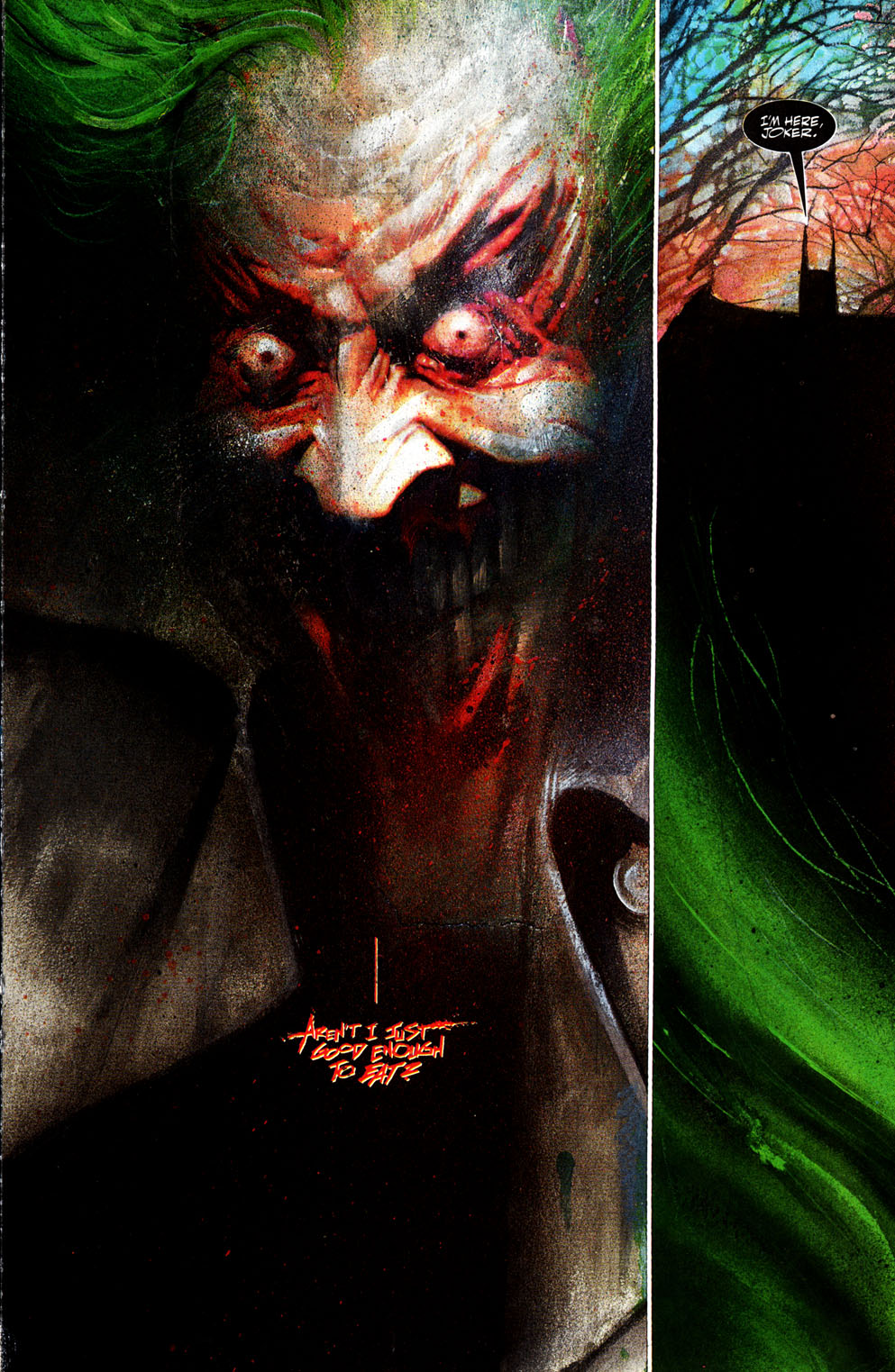 Arkham Asylum: A Serious House on Serious Earth
Arkham Asylum: A Serious House on Serious Earth
Drawing much more openly on gothic horror, Red Rain is another obvious choice. It pits Batman against Dracula himself, who goes mad from drinking the blood of the deranged citizens of Gotham City. In this memorable Elseworlds comic, Doug Moench’s script and Kelley Jones’ pencils deliver a combination of kinky baroque and locus horrendus which I’m sure Tim Burton would approve of…
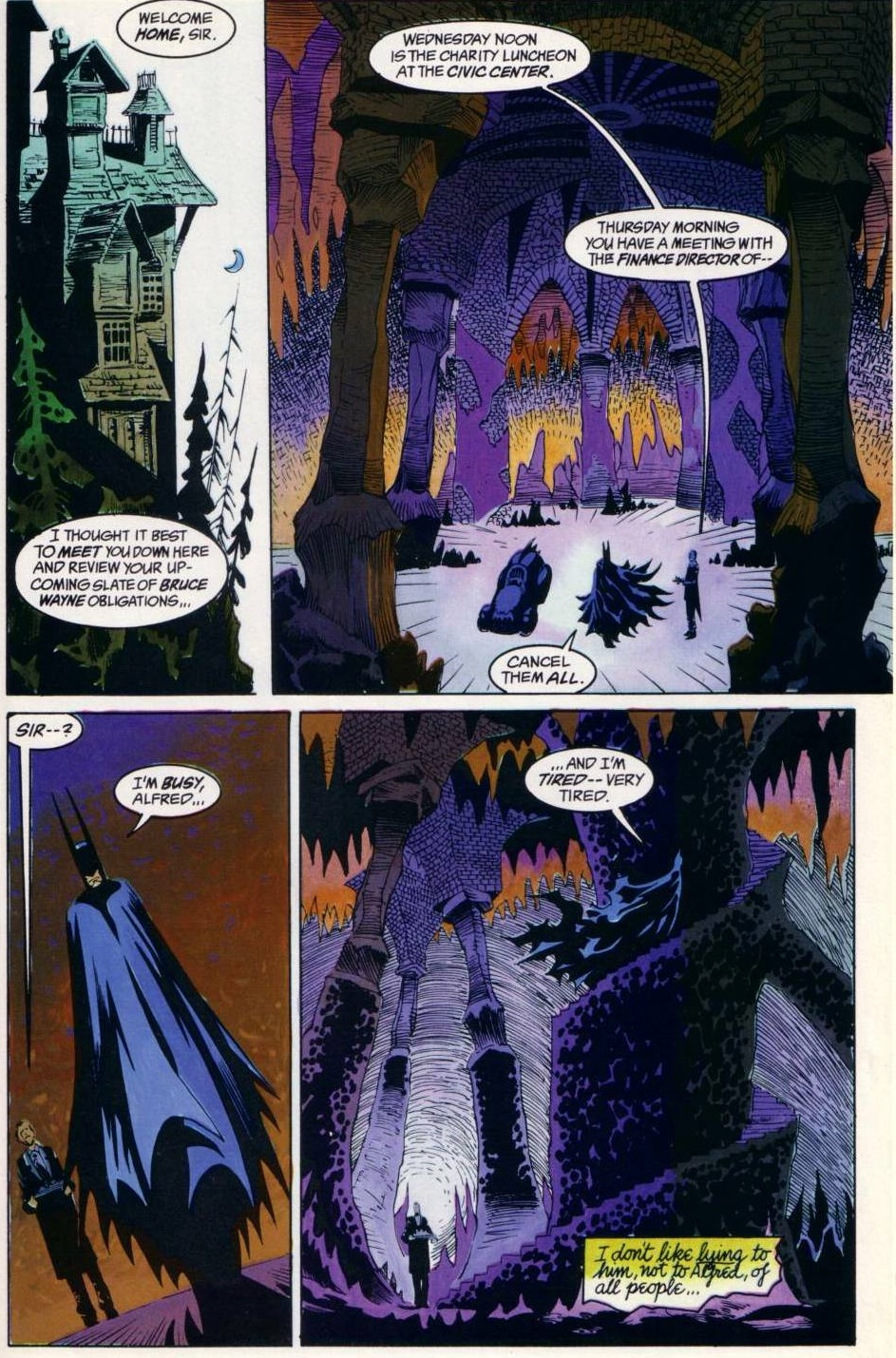 Red Rain
Red Rain
Moench and Jones followed this project with the gory Bloodstorm, which expands the Red Rain concept in cool directions, including a run-in between Catwoman and a werewolf. In a way, it kind of anticipates the Twilight Saga, except that the main plot involves the Joker trying to gather an army of undead mobsters!
There is yet another sequel, Crimson Mist, but it’s much less inspired and focused, just trying to cram in more and more villains into the mix. Notably, it also weakens Bloodstorm’s powerful ending… Nevertheless, the three stories have been collected in the trade paperback Batman: Vampire.
Finally, if you appreciate the sense of design in the Burton movies and/or their offbeat black comedy, there may also be something for you in the collaborations of Steve Englehart and Marshall Rogers (collected in Legends of the Dark Knight: Marshall Rogers). I’m thinking in particular about the Joker’s campaign for governor and the notion of Gotham as a city where a guy cannot even have some relaxed alone time without getting disturbed by a maniac:
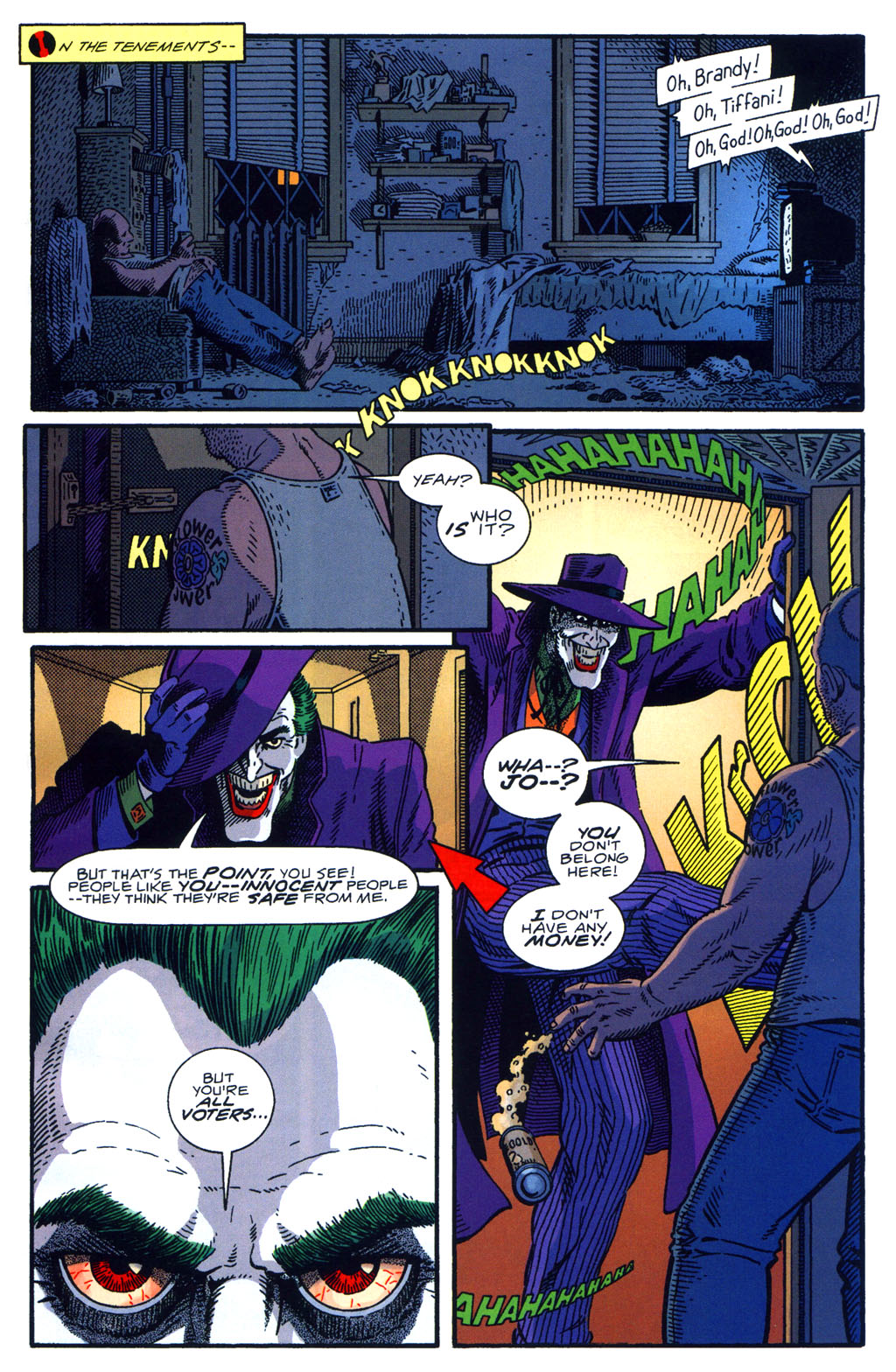 Dark Detective #3
Dark Detective #3
NEXT: Joel Schumacher.
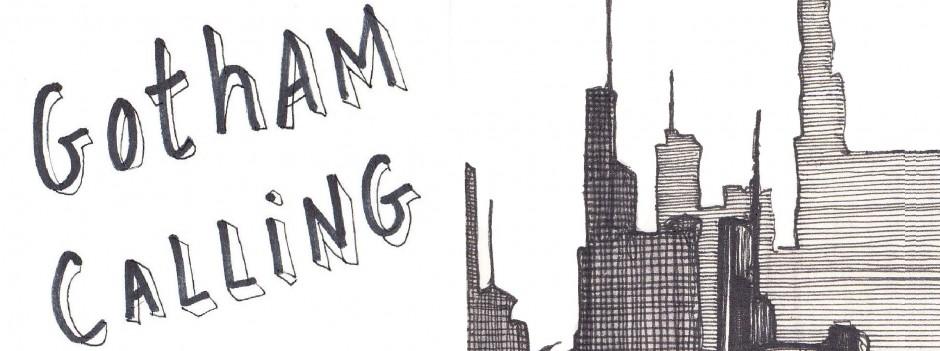
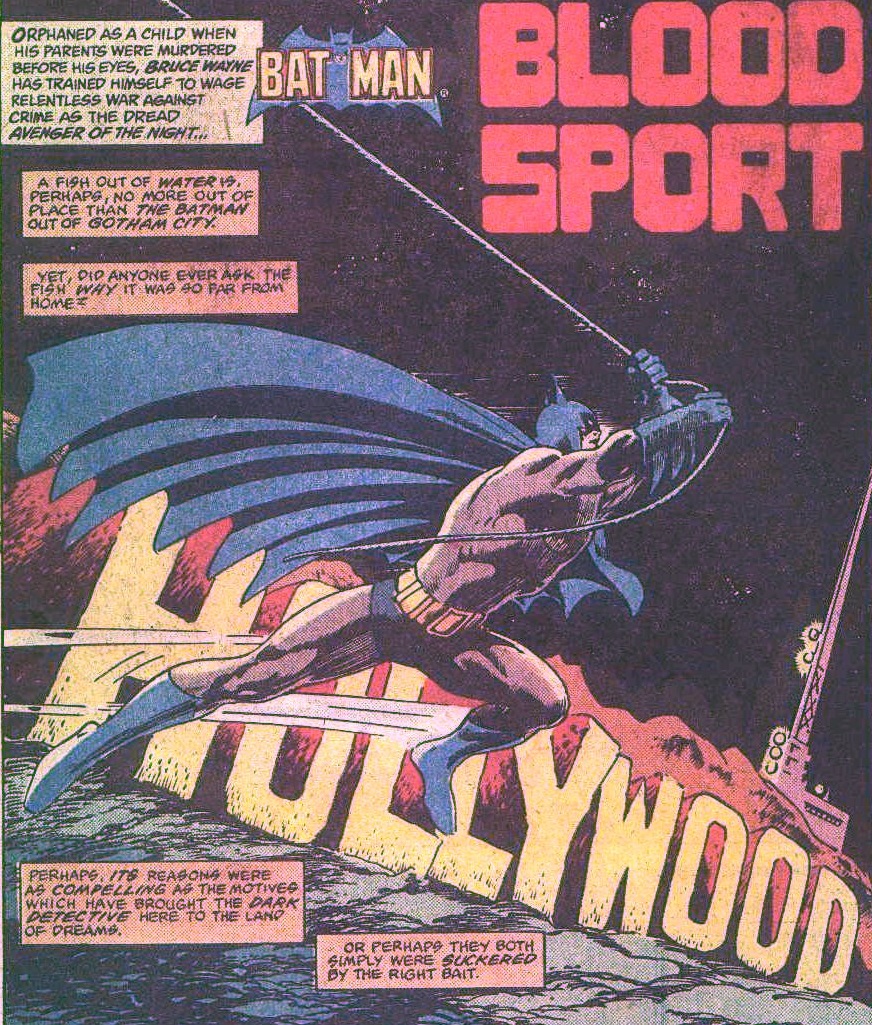
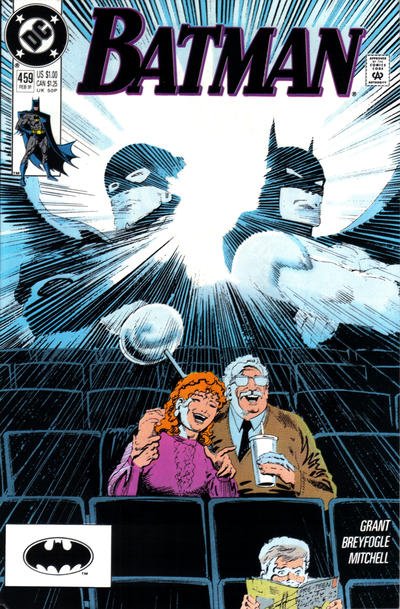
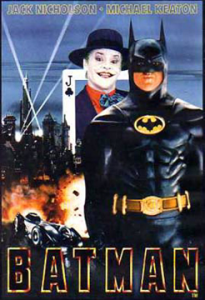
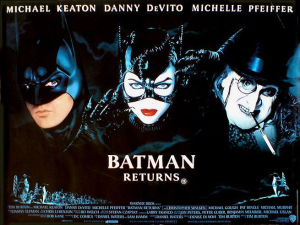
Personally, I think Burton’s Batman 89 is one of the best Batman films ever, since it draws so much from both the Golden Age and Bronze Age of Batman (the best eras in my opinions . On subsequent rewatching, it’s aged far better than any of Nolan’s trilogy, which often felt embarrassed by the comic fantasy of the character.
In my opinion, the best three Batman films that capture the character are the 89 film, mask of the phantasm, and Matt Reeves’s The Batman.